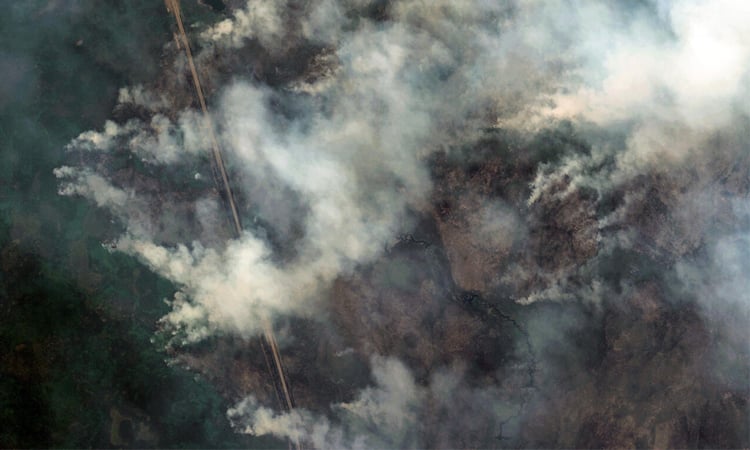
SQUAMISH, Canada, June 11, 2025 (BSS/AFP) - Residents of a town near
Vancouver were on stand-by to evacuate Wednesday as Canada's devastating
wildfire season worsened, with officials warning weather conditions through
the summer were ripe for further blazes.
A state of emergency has been declared in Squamish, British Columbia, just 64
kilometres (40 miles) north of Vancouver, a city where the greater
metropolitan area population exceeds three million.
British Columbia's emergency management department warned in a late Tuesday
post on X that some residents of Squamish district "must be ready to leave on
short notice."
Max Whittenburg, a 19-year-old Squamish resident, told AFP he was "in shock"
to see the fire encroach so close to the community.
"I've never seen a fire in Squamish, at all, ever," the skateboard coach
said.
"We've already prepared most of the stuff in our house just in case we do
have to evacuate," he added. "We'll be ready to go."
Luke Procter, also 19, said he was staying up late and rising early to
prepare, including by helping his father "hook up the trailer to our jeep
just in case we need to go."
Marc-Andre Parisien, a researcher at the Canadian Forest Service, said fires
near the coast like the one threatening Squamish are particularly worrying
because "these are areas that did not traditionally burn."
They remain less intense than fires further inland, but "we have more and
more of them," he told AFP.
Two years after a historically devastating summer, Canada is once again
facing a massive fire season, with burned areas already exceeding year-to-
date averages from recent years.
More than 220 active fires were burning across the country Tuesday, with half
of them considered out of control.
More than 3.3 million hectares (12,700 square miles) have already been
consumed by flames -- an area equivalent to the country of Belgium.
Smoke from Canadian fires has reached Europe after drifting across the
Atlantic Ocean.
- Increased risk -
In recent years, Canada has experienced warming at least twice as fast as the
rest of the globe.
Linked to human-induced climate change, rising temperatures lead to reduced
snow, shorter and milder winters, and earlier summer conditions that promote
fires, experts say.
Environment Canada forecast this week that much of Canada was likely to see
higher than normal temperatures throughout the summer.
That, combined with dry spring conditions in several areas, "could increase
the risk of wildfires in the coming months," Environment Canada said.
Two provinces in central Canada -- Saskatchewan and Manitoba -- were hard-hit
with rough starts to fire season, and had to declare a state of emergency at
the end of May.
Mega wildfires are now burning in western Alberta and British Columbia, as
well as in northern Ontario, the country's most populous province.
Now, more than a dozen new fires are detected daily across Canada -- often
started accidentally by humans, but sometimes ignited by lightning strikes.